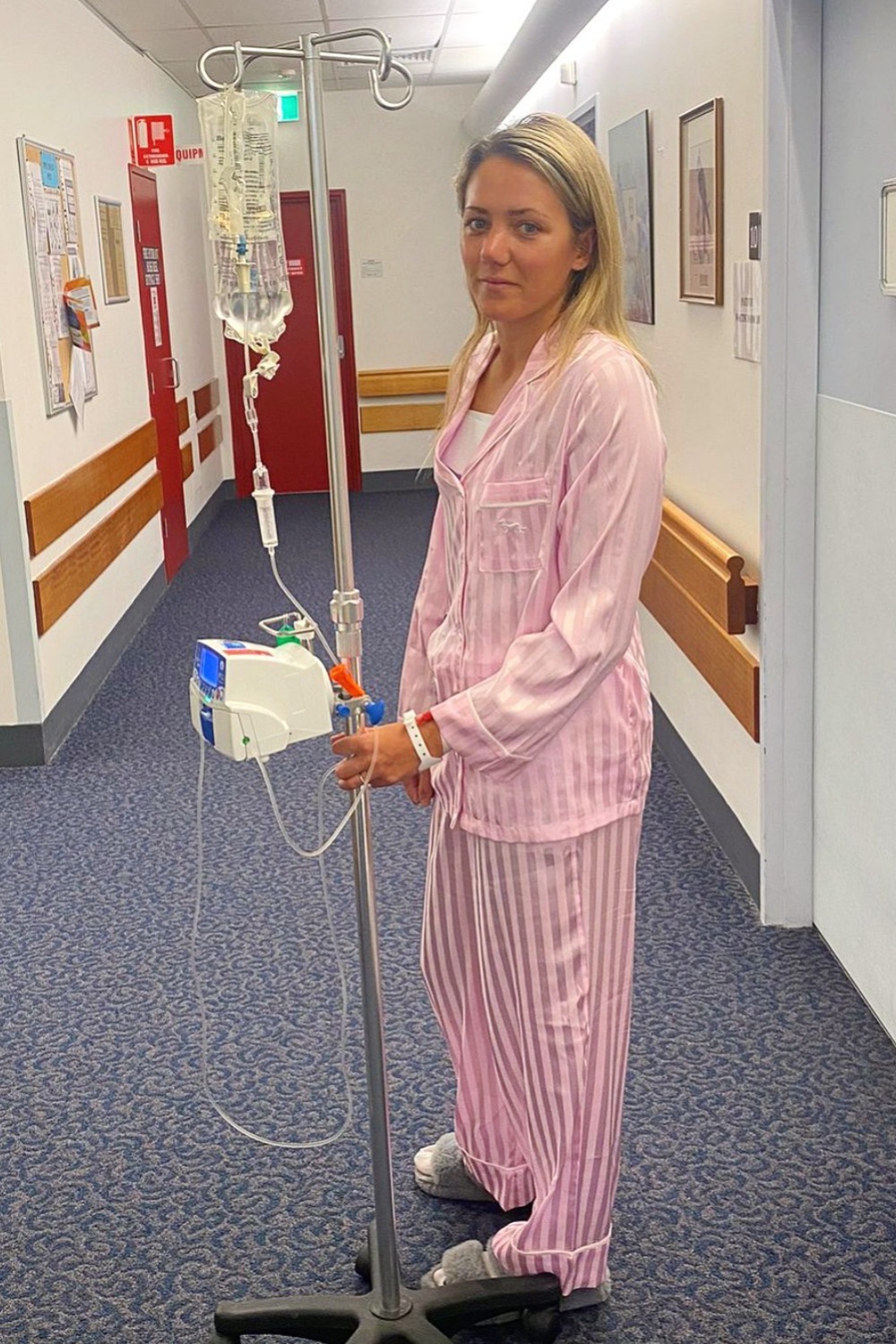Fertility preservation provides hope
Martine Dines was just 29 when she discovered two lumps in her right breast. It was 27 May 2021, the day she was supposed to marry her fiancé, Sean.
Visiting her GP when she arrived back in Sydney, Martine was quickly referred to The NSW Women’s Breast Centre at the Royal Hospital for Women. Six days later, Martine was diagnosed with early stage breast cancer.
She had three lumps and the cancer was on the move. The Breast Centre at The Royal cares for more than 2,500 women each year. The team includes breast care nurses, radiologists, radiographers, surgeons, breast physicians, psychologists, genetic counsellors and oncologists, all who play an important role in supporting patients throughout their breast cancer diagnosis and treatment.
The Royal’s Breast Care Nurses, Gill Neil and Jenny Cooper took care of Martine. From her diagnosis, through multiple surgeries, chemotherapy and for emotional or physical support, Gill and Jenny were there for her.
“Gill and Jenny went through everything with me, arranged everything, every single appointment, I didn’t need to do anything at all, just show up. If I had to book all that myself, I think I would have been lost,” Ms Dines said.
Within a month, Martine underwent a mastectomy and the reconstruction surgery of her right breast. Her journey through The Royal was far from over. Results from her mastectomy revealed that the cancer had spread to her lymph nodes.
With chemotherapy on the horizon, it was a race against the clock to ensure that Martine was able to save and store her eggs before the chemotherapy could damage her reproductive organs.
Before Martine was due to start chemotherapy and radiation, she went through IVF at the Royal Hospital for Women’s Fertility and Research Centre to retrieve eggs from her ovaries. With youth on her side, it was expected that they could obtain at least fifteen eggs, but there were only five that could be frozen.
The Fertility and Research Centre, a first of its kind in Australia, offers cancer patients timely fertility preservation before invasive chemotherapy and radiation treatment commences, free of charge.
Tests later revealed that Martine is a carrier of the BRCA2 gene, placing her at an increased risk of developing breast cancer again. It was a devastating blow, and meant that she would need a mastectomy on her left breast and eventually, a hysterectomy to remove her ovaries once she has had children.
At just 29 years of age, Martine has been put into a medically-induced menopause.
Professor William Ledger, Director of the Department of Reproductive Medicine, explains that the medically-induced menopause acts as a protection against the recurrence of breast cancer while protecting Martine’s eggs throughout her chemotherapy treatment.
The Royal’s Breast Centre and Fertility & Research Centre worked together to help Martine through one of the most challenging times of her life. Their expertise and kindness gave Martine and her partner reassurance that they not only were able to overcome the cancer, but the best technology and treatments available meant they had hope for a future with children.
When Martine is ready to start a family, her frozen eggs will undergo genetic testing at The Royal to see if they carry the debilitating BRCA2 gene. Genetic testing is an important part of the IVF process to ensure it gives Martine and Sean the best chance at a healthy family.
It is through donations to The Royal that patient care and treatment is able to remain at such an exceptional level. Funding for advancements in technology and breakthrough research are what gives patients like Martine hope for the future.
The Royal Hospital for Women Foundation are running their Heart for Her fundraising campaign throughout the month of June.
